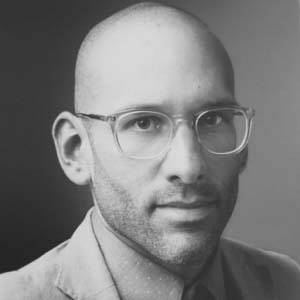Alexis Madrigal shared his thoughts and experiences during Clark College Foundation webinar
VANCOUVER — Every year, the Clark College Foundation brings back notable alumni to speak on their experiences and inspire students, staff and the community. COVID-19 has caused the format to go online, but the most recent alumnus couldn’t have been more relevant.

Alexis Madrigal, who graduated from Clark in 2000, is now one half of the leadership on The Atlantic magazine’s COVID Tracking Project. He took the time via Zoom to speak with over 100 students, staff and community members yesterday on that very subject.

“I don’t see it going away this year,” Madrigal said of COVID-19. “The real question for me is whether we will see what we’ve seen recently, which is this sort of bumping along, or if we’re going to see that sort of exponential growth that we saw in the early days. And, it’s quite hard to tell.”
The research conducted and the data collected by Madrigal, his reporting partner Robinson Meyer and with the help of well over 100 volunteers, has made significant ripples in the national pool.
The project has now reached out to and confronted every state in the union to seek more accurate information and numbers on COVID-19 virology tests, antibody tests, disparities in communities of color, and how the data is used to progress or slow reopening in states.
“We have a team that does the data entry and sort of ingest all the data from all the states. They go to all these different state web pages, they talk with the state health department,” he said. “Then we have an outreach team that does other kinds of work, does advocacy for this transparency. Contacting state senators who are interested in information, they go to other kinds of people and advocate for the importance of this data.”
A large portion of Madrigal’s presentation centered around the disparities in racial minority communities. His team has had to uncover such numbers, and discovered that the virus is not impacting all areas of America the same way or to the same level of intensity.
Madrigal pointed out that many new “hotspots” that are currently popping up are in packing plants, not dissimilar with the most recent Clark County spike at the Firestone Pacific Foods fruit packing plant in Vancouver. One conclusion the project has drawn is that this is directly tied to the disparities since many workers in these types of facilities are minorities.
“If you want to understand at all what’s happening, you need to understand what’s happening inside individual communities. If we had had more of this data available earlier, like if you’ve seen what’s happened in meatpacking plants, for example,” he said. “Like there’s lots of things people can say about how they’d like the money to be distributed in society, but life distribution in society must be equitable.”
Madrigal also pointed out how in many cities across America, disparities exist that are analogous to comparing a nordic country to one of the world’s poorest nations. Such gaps of life expectancy are a key factor in how COVID-19 has caused harm, he said.
In the realm of numbers, Madrigal had one very specific issue he explained: bad data.
Explained in its simplest form, bad COVID-19 data most often looks like poorly mixed data, he said. The project, early on, discovered more than a dozen states and even the Centers for Disease Control and Prevention (CDC), were mixing viral and antibody tests for COVID-19.
Not only does this breed confusion, Madrigal said, but it also causes inaccurate calculations and subsequent decisions. This is because viral tests, which determine if you at that moment are infected, and antibody tests, which determine if you’ve had it in the past, are quite different in calculating true case numbers.
Since Madrigal and his team at The Atlantic have reported this and directly asked state departments and the CDC to stop doing this, change has resulted, but it’s been slow at times.
“We think the data will get both better and more confusing,” he said. “The CDC has basically been absent until very recently. We know that they have even more than what they could be sharing. It’s like a pirate, like we’re a little mini pirate CDC, but ultimately we’re not the best people to do this work. Ultimately, the best people to do this work are the real CDC, who have the power to standardize the data that’s coming into them.”
Some good news of encouragement from Madrigal came while answering an audience question about how his project grades the Pacific Northwest in terms of COVID-19 data.
In short, they are doing very well, he said. Oregon has been a surprise to the project, considering it is sandwiched between two states with rather high case numbers, Washington and California respectively. Nevertheless, the data from Washington has been very accurate and helpful once the dashboard was launched, he said.
“We got a lot of attention from the governors to just issue executive orders, saying we’re going to capture all the test results and put it out. Then once you have that in hand, then you’re like, ‘Well, listen, we know you’re getting it. So you might as well put it out,’” Madrigal said. “That’s sort of like on the line between data advocacy, as we call it, which is, as far as I’m concerned, not really a political topic at all, and really a consonant with the long range guild values of journalism.”
Madrigal also answered questions pertaining to the elderly and vulnerable populations, and the long term effects of the project. The full recording of the webinar will be posted to the Clark College Foundation’s YouTube channel soon.




